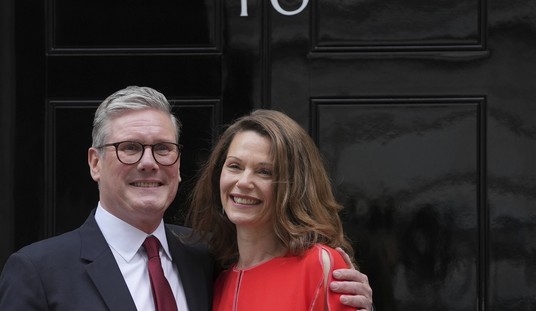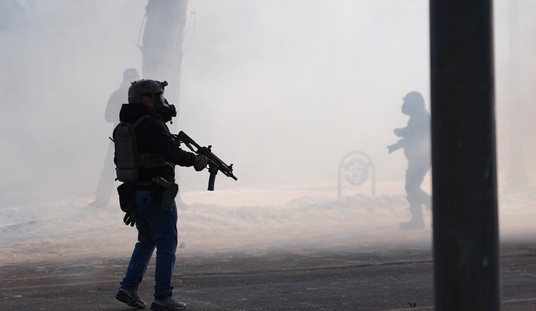The U.S. and China held the first of several days of bilateral meetings in Anchorage, Alaska today. There were some fireworks on display right out of the gate.
“We do not seek conflict, but we welcome stiff competition, and we will always stand up for our principles, for our people, and for our friends,” the U.S. national security adviser, Jake Sullivan, said at the start of talks with Chinese counterparts in Alaska.
Secretary of State Antony Blinken told China’s top diplomat, Yang Jiechi, and State Councilor Wang Yi in Anchorage that the U.S. side would discuss its “deep concerns” about Chinese actions in Xinjiang, Hong Kong and Taiwan, as well as cyber attacks on the United States and economic coercion of allies.
“Each of these actions threaten the rules-based order that maintains global stability,” he said.
That brought a lengthy response from the Chinese side, one in which diplomats argued that internal polling showed the CCP had wide public support. What else would polls show in a one-party state in which critics can suddenly disappear into prison. You’d have to be crazy to tell a pollster from state-run media that the CCP is doing a terrible job:
“We believe that it is important for the United States to change its own image, and to stop advancing its own democracy in the rest of the world,” Yang said, in extended opening remarks. “Many people within the United States actually have little confidence in the democracy of the United States,” Yang said. “According to opinion polls, the leaders of China, have the wide support of the Chinese people.”
Yang challenged the US claims to global leadership saying that “the US does not represent the world, it only represents the government of the United States,” before State Councilor Wang Yi weighed in to say China would not accept “the unwarranted accusations from the US side.”
Because the Chinese opening remarks went on longer than scheduled, Sec. Blinken asked the media not to leave the room and then gave an additional statement to balance the time:
After Wang finished and aides started to usher cameras out of the room, Blinken interjected, “Hold on one second please.” The top US diplomat motioned for the press to return. “Hold on one second,” he said. “Director, state counselor, given your extended remarks, permit me please to add just a few of my own before we get down to work.”
The top US diplomat said that in calls with nearly 100 counterparts, he was “hearing deep satisfaction that the United States is back, that we’re reengaged with our allies and partners. I’m also hearing deep concern about some of the actions your government is taking.”
Because U.S. officials had now spoken twice, Chinese diplomats demanded another chance to speak. U.S. officials later accused the Chinese of grandstanding for domestic consumption:
A senior Biden administration official accused the Chinese diplomats of breaking protocol, going beyond the two-minutes the speakers had been allotted at the top of the first session.
Such “exaggerated diplomatic presentations often are aimed at a domestic audience,” the official said, adding that the U.S. side intended to “outline for the Chinese delegation in private the same messages we have consistently delivered in public.“
“The Chinese delegation, on the other hand, seems to have arrived intent on grandstanding, focused on public theatrics and dramatics over substance,“ the official added.
There are a couple more days of meetings but no goals and no plans for a follow-up. The U.S. is framing this as a one-off and saying there won’t be another meeting unless China makes some progress on areas of concern. Meanwhile, China is talking tough to state media. Here’s the Chinese Ambassador to the U.S. saying, “If someone thinks that China came to snowy Alaska…to make compromise and concession, then I would suggest that my colleagues in Beijing cancel this trip as soon as possible.”
Here’s the opening salvo from the U.S. side. I don’t see a comparable video of comments by the Chinese side available in English at the moment.









